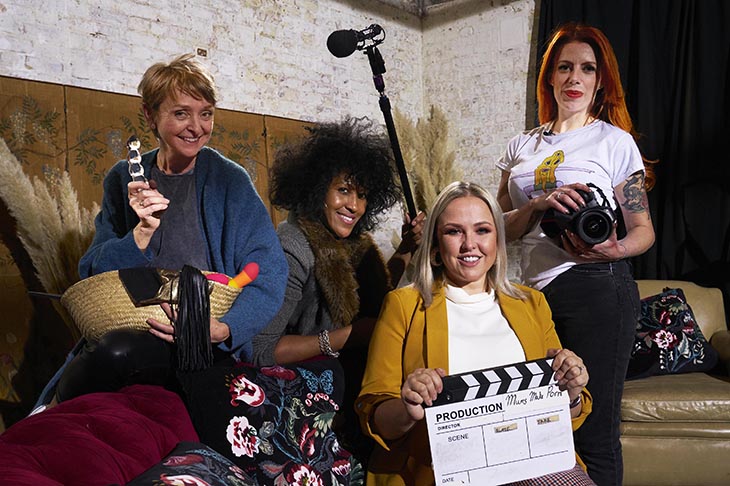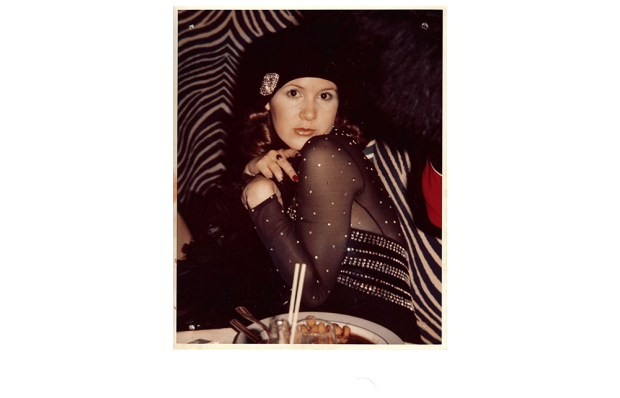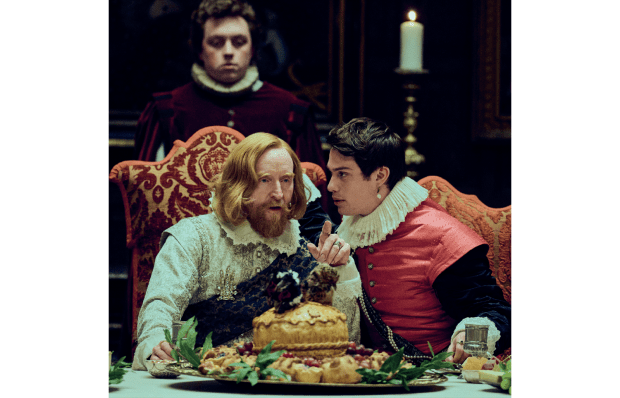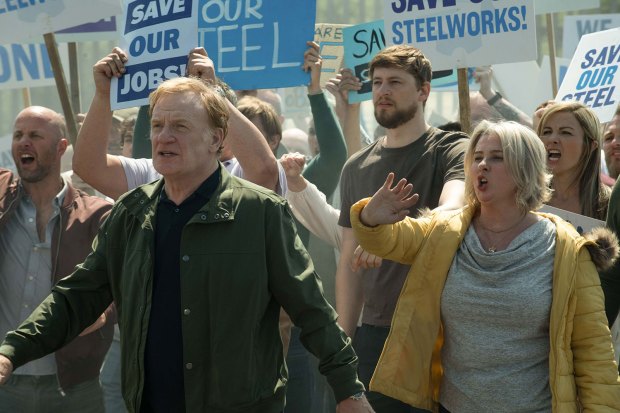What can parents do about the avalanche of pornography available to their children on tablet, phone and laptop? This question was the starting point for a documentary series that began on Wednesday — and the answer proved unexpected. Having gathered five mothers together and shown them a hair-raising selection of online filth, the programme blithely declared that the best way for these women to ‘make a change’ was ‘by making their own mum-approved porn film’, which they’d then screen for their families and friends.
If this premise struck anyone involved in Mums Make Porn (Channel 4, obviously) as at all questionable, they didn’t mention it. Instead, the programme simply went about its business of simultaneously stressing how abnormal porn is and normalising it.
The five women are, as you might expect, a mixed bunch. At the racier end of the spectrum is Anita, who enjoys watching porn herself and whose initial idea for family-friendliness was ‘triple penetration but with foreplay’. Considerably less gung-ho is Jane, a Christian feminist, who’d never seen the stuff before and gave every impression of wishing she hadn’t seen it now. (‘Close-up shots of genitalia? Why?’) The other three are somewhere in the middle, with Sarah Louise presumably speaking for many parents when she said that she doesn’t want her children to think fivesomes are a common human activity.
At this point, the film they’ll write, direct and produce is at the research and development stage — although it seems unlikely that Sarah Louise will achieve her dream casting of Gary Lineker as the male lead. While still encouraged to keep up with online videos, the women were sent to some British porn sets to see how the professionals do it — which in one case was intermittently. ‘I’ll have to wait five minutes for my todger,’ explained the man after a while. ‘OK,’ replied his co-star Roxy good-naturedly. ‘I’ll go for a wee.’ Even so, the scene was a bit much for Sarah Louise, who, rather to Anita’s disgust, popped out for a lengthy vomit.
Fortunately, Emma, the poshest of the five, was more sanguine about her set visit. After witnessing a cheerful dominatrix doing the work that she claims to ‘absolutely love’, Emma pronounced the woman ‘amazing’ and the whole visit ‘weirdly not weird’ — which definitely isn’t a verdict you can apply to Mums Make Porn itself.
Nonetheless, lurking somewhere amid the wild contradictions — and, let’s face it, comedy — is a more sombre programme altogether. Interspersed with the main action on Wednesday were interviews with teenagers (some of them the women’s children), who talked of their experiences of seeing porn, which, on the whole, appeared to be alarmingly frequent from the age of about 13. Worse still for any parents watching, the teenagers delivered these revelations in an entirely matter-of-fact way, seeming to accept porn as just another inescapable feature — perhaps regrettable, perhaps not — of growing up.
Meanwhile, just in case Mary Whitehouse had stopped rolling in her grave, the following night BBC2 brought us the new drama Pose: an enthusiastic celebration of the black LGBT community in 1980s New York, with particular emphasis on the T. Given that the cast are largely trans too, this is the sort of programme that we’re now obliged to like almost by law. Luckily, it’s very likable, although fans of nuance should probably look elsewhere.
The setting is the ‘ballroom’ scene of the time, when young gay black people formed alternative families known as houses. These came complete with a domineering ‘mother’ who laid down the law and masterminded their house’s regular performances at dance competitions where the adjective ‘fabulous’ was apparently never far from anybody’s lips. (Pose duly began with a close-up of a glitterball.)
For a show already routinely garlanded with the word ‘breakthrough’, the programme certainly isn’t short of clichés. Young men signal their gayness by dancing to Donna Summer in their bedrooms. The dialogue includes such lines as ‘This isn’t about you. It’s about me.’ The straight white world is represented by a coke-snorting executive who works for Donald Trump, boasts of how expensive his watches are, barks unpleasantly into an oversized mobile phone and proclaims ‘God bless Ronald Reagan’. Naturally, too, all the LGBT folks are lovely — with the sole exception of the mother of a rival house, who appears to be channelling Joan Collins in her Dynasty days.
And yet, Pose is so essentially warm-hearted that this campy shamelessness becomes part of the fun, as it draws us into its intriguing and possibly unfamiliar world. It also makes touchingly clear the appeal of that world to the people in it — most of them rejected by their biological families. The result is still too corny to qualify as great drama. But as a rich slice of glossy soap opera, it’s right up there.
Got something to add? Join the discussion and comment below.
Get 10 issues for just $10
Subscribe to The Spectator Australia today for the next 10 magazine issues, plus full online access, for just $10.
You might disagree with half of it, but you’ll enjoy reading all of it. Try your first month for free, then just $2 a week for the remainder of your first year.














Comments
Don't miss out
Join the conversation with other Spectator Australia readers. Subscribe to leave a comment.
SUBSCRIBEAlready a subscriber? Log in